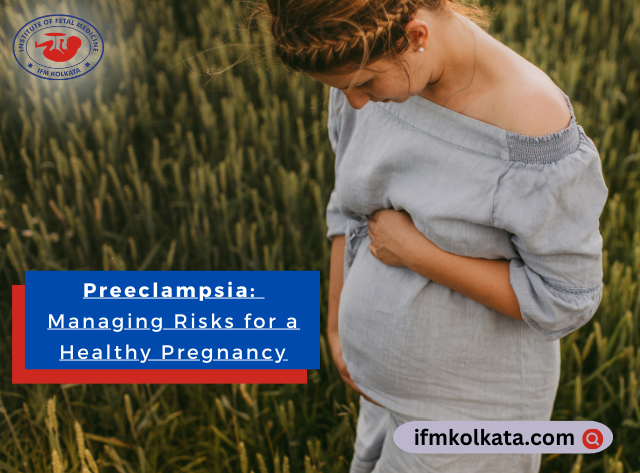Preeclampsia is a serious pregnancy complication characterized by high blood pressure and signs of damage to other organ systems, often the liver and kidneys. It typically occurs after the 20th week of pregnancy and can affect both the mother and the developing baby. Early recognition and management of preeclampsia are crucial to preventing severe health problems. Understanding its meaning, causes, signs, and the importance of prenatal care can help ensure a healthy pregnancy outcome.
Preeclampsia Meaning
Preeclampsia is a condition that usually develops during the second half of pregnancy, marked by a sudden increase in blood pressure and often a significant amount of protein in the urine. It can range from mild to severe and, if left untreated, can lead to serious or even fatal complications for both mother and baby.
Preeclampsia Signs and Symptoms
Recognizing the signs and symptoms of preeclampsia is crucial for early intervention:
- High Blood Pressure: A reading of 140/90 mm Hg or higher, measured on two occasions at least four hours apart.
- Proteinuria: Excess protein in the urine, indicating kidney problems.
- Severe Headaches: Persistent headaches that do not respond to typical pain relief methods.
- Changes in Vision: Blurred vision, temporary loss of vision, or sensitivity to light.
- Upper Abdominal Pain: Often under the ribs on the right side.
- Nausea or Vomiting: Especially if it begins after mid-pregnancy.
- Decreased Urine Output: Indicating potential kidney issues.
- Swelling: Particularly in the face and hands.
It’s important for pregnant women to attend regular prenatal check-ups to monitor for these signs.
Preeclampsia During Pregnancy
Preeclampsia can affect both mother and baby in various ways:
- Maternal Complications: Can lead to organ damage, stroke, and seizures if not managed. In severe cases, it may necessitate early delivery to protect the mother and baby.
- Fetal Complications: Can restrict blood flow to the placenta, leading to fetal growth restriction, preterm birth, and other developmental issues.
What Happens if You Have Preeclampsia While Pregnant?
If diagnosed with preeclampsia, careful monitoring and management are essential:
- Regular Monitoring: Frequent prenatal visits to monitor blood pressure, urine protein levels, and fetal well-being.
- Lifestyle Changes: Rest, reducing salt intake, and managing stress levels can help manage symptoms.
- Medications: Blood pressure medications and corticosteroids may be prescribed to manage symptoms and prepare the baby’s lungs for early delivery if necessary.
- Early Delivery: In severe cases, delivery may be recommended to prevent further complications, even if it means delivering the baby prematurely.
Preeclampsia Screening First Trimester
Screening for preeclampsia is an important part of prenatal care, especially for women at higher risk:
- Risk Assessment: Identifying risk factors such as a history of high blood pressure, kidney disease, obesity, or a family history of preeclampsia.
- Blood Tests and Ultrasound: Early screening can help identify signs of preeclampsia, such as abnormal levels of certain proteins in the blood or placental abnormalities.
Fetal Medicine and Prenatal Testing in Kolkata
For women in Kolkata, the Institute of Fetal Medicine Kolkata (IFM) is a leading center for managing preeclampsia and ensuring optimal fetal health. The best fetal medicine clinic in Kolkata provides comprehensive prenatal testing and fetal health assessment to monitor and manage preeclampsia effectively.
Fetal Health and Pregnancy Care
Ensuring fetal health and providing specialized pregnancy care is essential for women diagnosed with preeclampsia. The Fetal Medicine Specialist in Kolkata and the team at IFM offer personalized care and treatment plans to manage preeclampsiaa and ensure the health and safety of both mother and baby.
Final Thoughts
Preeclampsia is a serious condition that requires careful management and monitoring throughout pregnancy. Understanding its meaning, recognizing its signs, and knowing how it can affect both mother and baby are crucial for ensuring a safe and healthy pregnancy. With the support of a fetal medicine expert and the Institute of Fetal Medicine Kolkata, women can receive the best possible care to manage preeclampsiaa and protect their health and the health of their baby.

